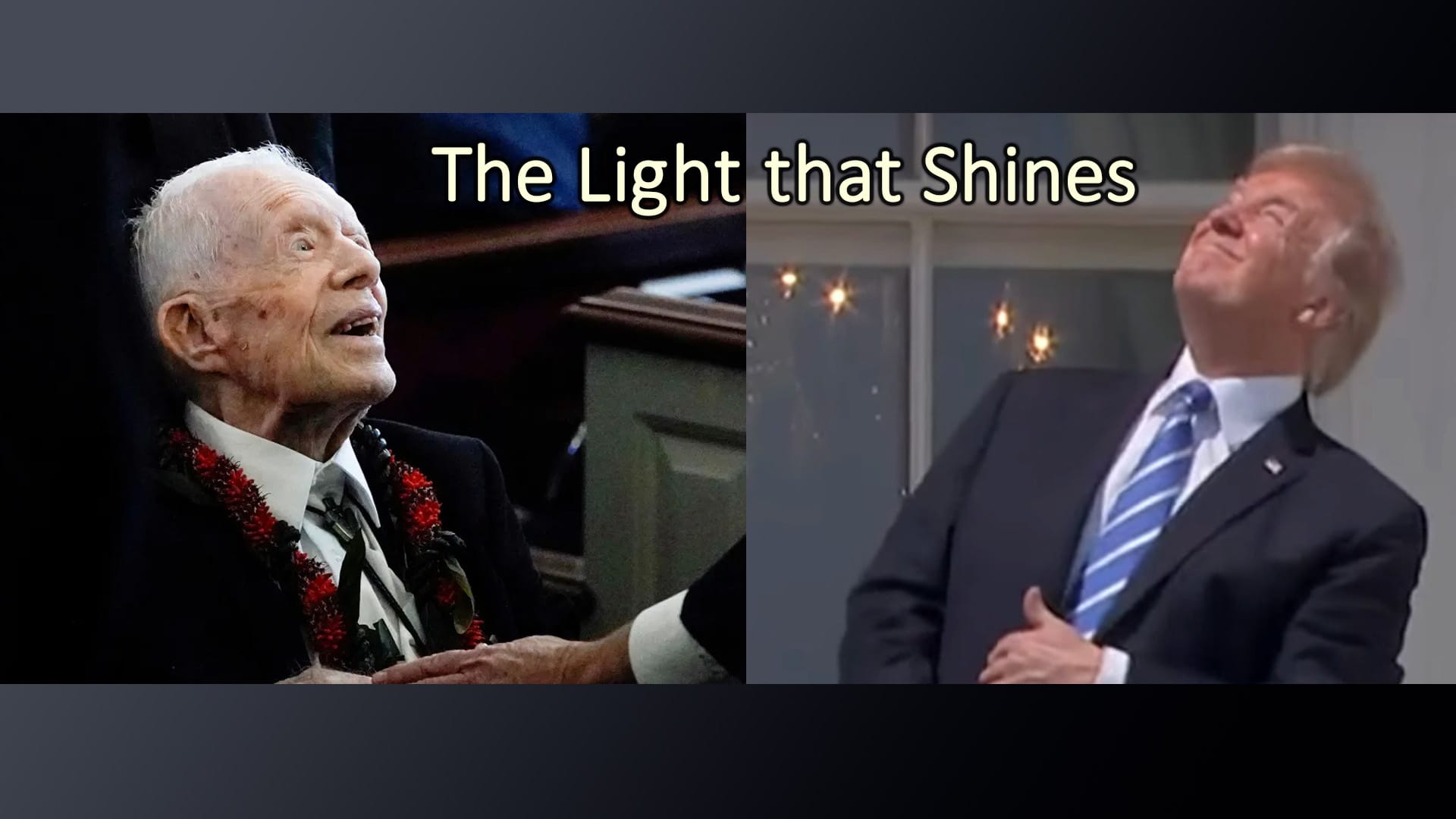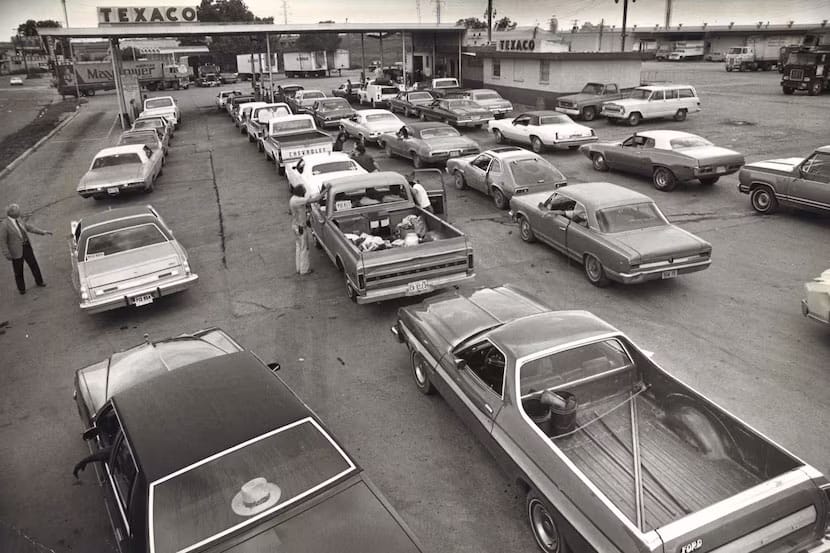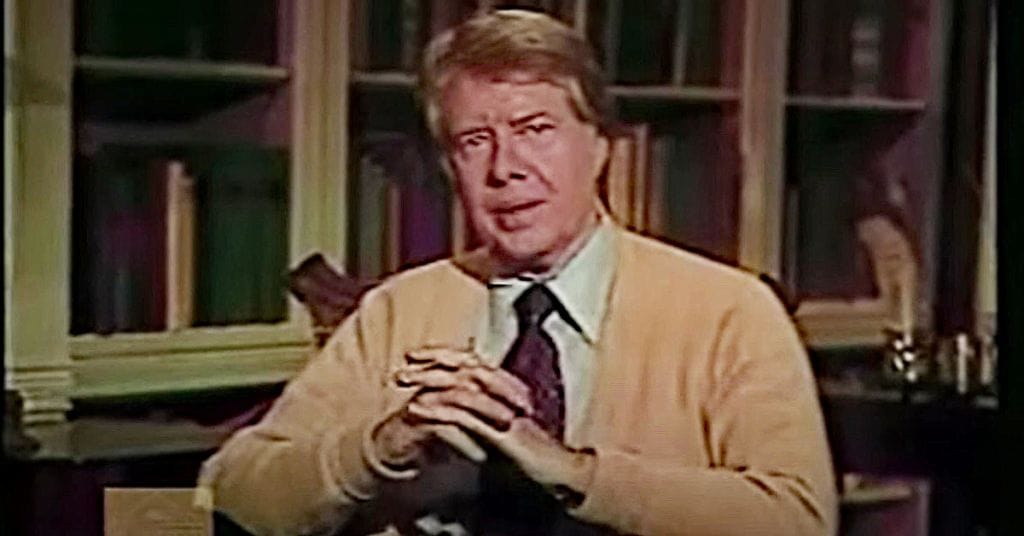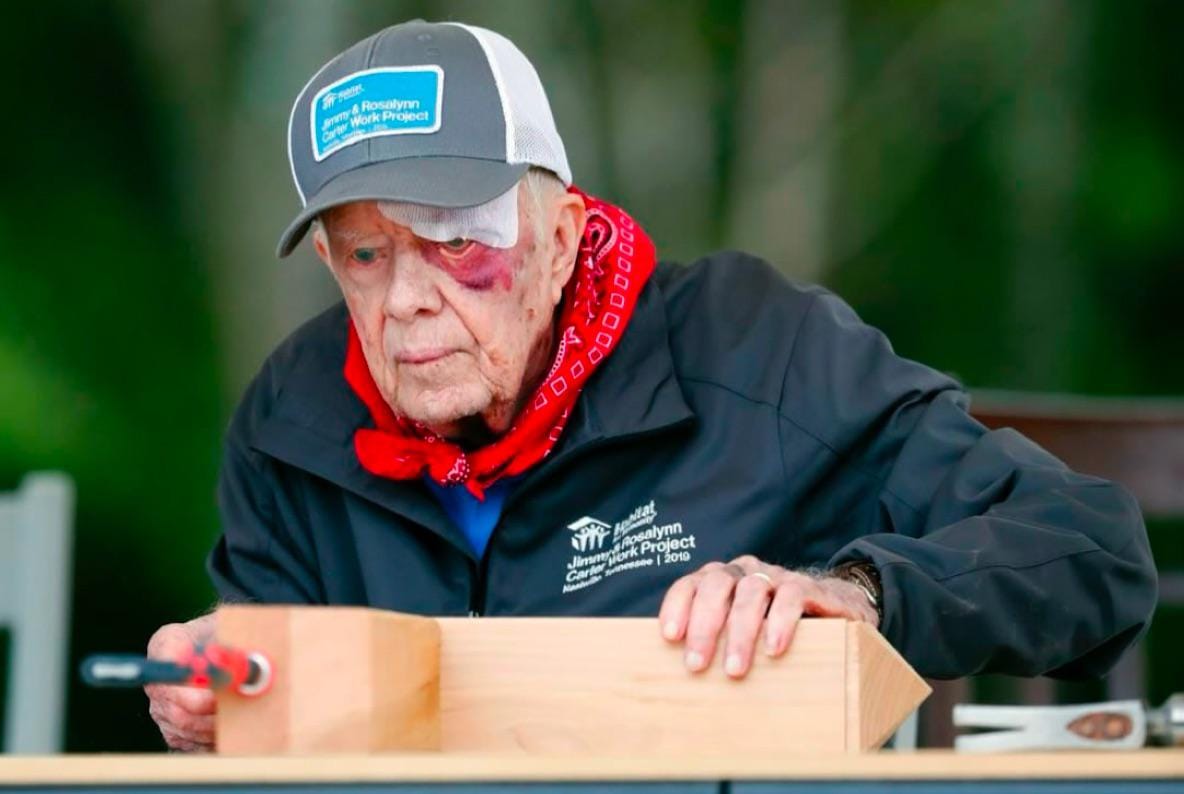The President We Need
A farmer. A Navy lieutenant. A pious man - faithful to God, country, wife, and family. A servant leader who risked his rank, reputation, and popularity for his nation and its people. James Earl Carter, Jr. was the kind of president we always "say" we want.

"He was a man take him for all in all, I shall not look upon his like again."
-Hamlet, reflecting upon the life of his father, the late king
A Light
Maybe it's the many years the former president spent in retirement, where he spread a warm light and hope (and good works) around the world. Maybe it's the harsh and glaring light that the current president-elect emanates, putting others in shadow. However, the legacy of the former president is receiving overdue reconsideration. His death last Sunday at 100 years of age has produced hundreds of column inches written on that legacy. His was often referred to as a "failed presidency." But his reputation as a human was unassailable. Honest, decent, smart. A farmer who served in the military honorably. A pious man who was faithful to God, his country, his wife, his family. A servant leader who often risked his rank, reputation, and popularity to advance his nation and fellow citizens. James Earl Carter, Jr. was the kind of president that we always "say" that we want.
from Heather Cox Richardson: "Carter’s South was impoverished. He grew up on a dirt road about three miles from Plains, Georgia in the tiny, majority-Black village of Archery, where his father owned a farm and the family grew corn, cotton, peanuts, and sugar cane. The young Carters and the children of the village’s Black sharecroppers grew up together as the Depression that crashed down in 1929 drained away what little prosperity there was in Archery."
Carter did some college coursework in Georgia and signed up for the Naval Academy, graduating in 1946. He became a submariner and attained the rank of lieutenant. Near the end of his military career, he served in the design and preparation of the nation's new nuclear sub fleet. He retired in 1953 after his father died so that he could return to Plains to run the family farm.
Carter took a state senate seat in the early 60's, and tried a run for governor in 1966. He was easily beaten by the notorious segregationist Lester Maddox. In a move that foreshadowed his presidency, when he ran again in 1970 he spoke in a populist tone to win, careful not to upset segregationists who were upset by SCOTUS's Brown v. Board of Education. Once elected, he immediately governed as a reformer.
again, from Richardson:
When Carter took office in 1971, he abandoned his concessions to white racists and took a stand for new race relations in the United States. “I say to you quite frankly that the time for racial discrimination is over,” he told Georgians in his inaugural speech. “No poor, rural, weak, or Black person should ever have to bear the additional burden of being deprived of the opportunity of an education, a job, or simple justice.”
Carter brought to office a focus not only on civil rights but also on cleaning up and streamlining the state’s government. He consolidated more than 200 government offices into 20 and backed austerity measures to save money while also supporting new social programs, including equalizing aid to poor and wealthy schools, prison reform and early childhood development programs, and community centers for mentally disabled children.
Carter took the White House away from a scandal-ridden Nixon administration, (Ford was Nixon's temporary successor.) His reputation as a reformer and outsider worked for him, as did his rural farming experience and a stellar military record. He set about with his Boy Scout sensibilities to restore confidence in the federal government.
His one-term presidency was, in a word, complicated.
He accomplished a great deal while facing nearly insurmountable problems. Today's dominant Republican Party would like you to remember him as a weak and inconsequential failure. Nixon had to deal with an Arab oil embargo that brought about higher energy prices, inflation, and a recession. Carter inherited that inflation and then a revolution in Iran caused already high oil prices to double. Inflation worsened and interest rates spiked. Worse, after Carter had publicly praised the Shah of Iran, a group of students stormed the US Embassy in Tehran and took 52 Americans hostage for 444 days. Rather than invade Iran, Carter wanted to use economic sanctions and diplomacy... U.S. hawks and the testosterone contingent (which would later get a couple of fun and exciting Middle East wars under the Bushes) were itching to call in the cavalry. Carter did order a special op rescue mission that failed miserably. Two aircraft were lost and 8 service members were killed in the aborted attempt. Carter would eventually negotiate for the return of the hostages, but Iran (with Reagan's back door negotiations) would release them immediately after Reagan's swearing-in so that Carter would not get the credit.
Carter was nerdy and soft-spoken. He disliked "politicking" and deal-making within his party and with Congress, hoping his policies spoke for his leadership capability. This gave Republicans and the southern Democrats (who were increasingly dissatisfied with desegregation) room to disparage his administration. Long gas lines plagued American drivers. Though Nixon signed the National Maximum Speed Limit law to save on fuel, it was Carter who would have to implement and enforce it. People hated it... drive 55??? He installed solar panels on the White House roof (President Reagan took great joy in pulling them down.) He asked Americans to conserve energy by turning down their thermostats to 65° in the winter and dressing warmly. He followed his own advice and kept the White House temperature low and was regularly photographed wearing cardigan sweaters. This gave him a rather wimpy "Mr. Rogers" image. Repeatedly asking voters to make sacrifices wore thin. The public (we) wanted HIM to fix problems, without giving up our lifestyles. It seems that Americans really like driving fast, staying toasty warm, and not waiting in line to fill up their gas-guzzling tanks.



Gas lines in 1979. Jimmy Carter as Mister Rogers in the Washington neighborhood. Getting 55 MPH speed limit signs ready to deploy, nationwide. The most ignored road sign in America.
In the late 70s when the hostages were seized in Tehran, my dormmates and I were more than just a little concerned. It hadn't been that long since the draft was discontinued... even though we had all still been required to register for the Selective Service on our 18th birthdays. All of us had been raised on Cronkite's nightly reports about the Vietnam War, complete with "body counts" and casualty figures. None of us was excited in the least about the prospect of free airfare into a Middle East quagmire. We were grateful for Carter's diplomacy and shared his profound disappointment when the rescue mission failed.
Quick sidebar: Note that none of the travails that Carter was put through were of his making. It was... a lot. And while he handled each challenge intelligently and with grace and diplomacy - they stacked up. Every decision had its detractors.
Quick sidebar 2: I was producing a little corporate promotional video for an investment group many years ago. We were interviewing one of the broker/partners when my videographer on the shoot noticed a large framed set of military medals on the wall. 'Hey... Where did you get that Silver Star?' (He had come from a military family, and immediately recognized the award.) The distinguished-looking gentleman asked us if we had remembered anything about a hostage crisis in Iran back in 1979. Of course we had.
"Well, I was on that raid."
We talked to him with admiration for a moment or two. We knew that the rescue attempt had failed, so we didn't belabor the conversation, we were there on his dime to produce a work product. A few years later, I saw him interviewed on 60 Minutes. They were taking a look at the shape of US Special Forces, and how the failure of that raid led us to where we are today. I dug deeper into the story... The gentleman I met is Logan Fitch, and he was in command of an early Delta Force squad. Fitch and his team were on one of the C130 transport planes in a desert staging area inside of Iran, ready to take off after the mission was ordered to abort due to various equipment failures. As the last of his squad was boarding, one of the helicopters, maneuvering in the dark and a sand cloud generated by its own prop wash, clipped and crashed into the plane. Fitch got most of his men out and barely escaped the resulting fireball himself.
Later, the photographer and I agreed that this tough old guy could have walked out of country if he'd had to.
I tell this little story because Fitch, like most of the other survivors of the mission, (and most of the many post-mortem studies,) did not blame Carter for failure. It was due to a huge mashup of problems, mainly that Delta Force and other Special Ops teams were in their very infancy - this was the first big mission of its kind. The Army, Navy, Air Force, and Marines formed the joint force. There were command and communications issues. Some of the maps used were old tourist maps. There was very little training for a joint task force like this one. (Most blame went to the military for these breakdowns in communication and readiness. The mission failure would lead to a concerted effort to create and train a force ready to deploy worldwide on a moment's notice.) Compare with the Osama Bin Laden raid.
Nice guy, that Carter, but it DOES sound like mistakes were made.
OK then. Here's a brief list of accomplishments: (from a list compiled by Stuart E. Eizenstat at the WaPo.)
• The nation’s first comprehensive energy policy, including the first support for renewable energy sources.
• The doubling of national park land (mostly through the Alaska lands bill) and a string of bills that strengthened environmental and consumer protections.
• The first civil-service reform in nearly a century.
• The first major mental health bill — later defunded by President Ronald Reagan.
• The creation of two new Cabinet departments, Energy and Education, and the Federal Emergency Management Agency (FEMA)
• The deregulation of airline fares, trucking routes, utilities and the price of natural gas.
• The appointment of five times as many female federal judges as all of Carter’s predecessors combined.
• The development of high-tech weaponry (most notably, the B-2 stealth bomber) that helped win the Cold War.
• He established the Senior Executive Service and insulated civil service workers against political pressure.
• He slowed the revolving door for departing officials and placed independent inspectors general in every department.
• The Office of Special Counsel originated with his legislation to investigate possible wrongdoing by high-level officials.
• He extended ethical standards to the private sector through the Foreign Corrupt Practices Act, barring corporations from bribing foreign officials to obtain contracts.
• Following Nixon's lead, he normalized relations and afforded diplomatic recognition of China, enabling the two countries to develop a bilateral relationship.
• The first president from the Deep South since Reconstruction championed civil rights and appointed more women, Black Americans and Jews to senior administration positions and judgeships than all 38 of his predecessors combined.
• He increased defense spending after Vietnam and green-lit every major new weapons systems Reagan later deployed against the Soviets, including persuading reluctant European governments to accept nuclear missiles on their soil, which Mikhail Gorbachev later cited as a significant factor in the Soviet demise.
Carter appointed Paul Volcker to the Fed to tame inflation which had risen to 14.8% in 1980. In a cure that seemed as bad as the disease, Volcker raised prime interest rates to 21.5%. The pain for consumers and average workers was severe, and Carter, once again took the blame. But that started the recovery that Reagan would take credit for. (Reagan would reappoint Volcker.)
His signature achievement was the Camp David Accords. In over 12 days of negotiations with Anwar Sadat of Egypt and Menachem Begin of Israel, Carter hammered out a peace deal that has lasted until this day. (Yes, there are more deadly conflicts that currently involve Israel, and Carter continued through his life to try to bring various Middle Eastern countries to peace.)
It was his post-presidential career that took Carter to virtual sainthood. Again, from Heather Cox Richardson:
In partnership with Emory University, he and Rosalynn established the Carter Center, an Atlanta-based nongovernmental, not-for-profit organization to advance peace, health, and human rights around the world. The Center has supervised elections in more than 100 countries, has helped farmers in 15 African countries to double or triple grain production, and has worked to prevent disease in Latin America and Africa. In 1986, when the Carter Center began a program to eradicate infections of the meter-long Guinea worm that emerges painfully from sufferers’ skin and incapacitates them for long periods, 3.5 million people a year in Africa and Asia were infected; in 2022 there were only 13 known infections, in 2023 there were 14. So far in 2024, there have been 7, but those will not be officially confirmed until spring 2025. In a 2015 interview, Carter said he hoped to outlive the last case.
The man, through his committed leadership, for all intents and purposes, eradicated a world-wide disease!
If you've ever heard of "Habitat for Humanity," you've probably seen footage of Jimmy Carter, swinging a hammer and building houses for those in need. The Jimmy & Rosalynn Carter Work Project worked alongside the Habitat group with over 108,100 volunteers who have built or repaired more than 4,447 homes in 14 countries raising awareness of the desperate need for affordable housing.

Until the pandemic, he taught Sunday School at Maranatha Baptist Church in the still tiny Plains, Georgia. The offering there is collected in wooden plates that Carter had made for the church. He was an evangelical Christian throughout his life. On the one hand, that helped him during his presidential run with other fundamentalist Christians. But he would leave the Southern Baptist Convention in 2000 when the SBC no longer allowed women preachers. This alienated many of those evangelicals who were becoming conservative politically.
He walked the walk.
Carter never held up autographed bibles that he offered for sale. He was married to a girl he met while attending the Naval Academy; they were married for 77 years. (Hilariously, one of the few "scandals" during the Carter administration was when he confessed to a Playboy (?) reporter, "I've looked on a lot of women with lust. I've committed adultery in my heart many times." Not exactly cheating with a woman and paying her $160K out of your campaign funds... but maybe he should have saved the honest confessions for a private talk with his pastor.)
Instead of cashing in on his time in office, Carter rejected speaking fees, corporate board memberships and golf in favor of writing 32 books to pay his bills...
Carter operated from a strong, moral center. Is the worst thing you can say that it got in the way of his politics? But now, the country itself seems to have lost that center, and with few exceptions, much has come from the top down. Through so many accomplishments, Carter was at least until recently, considered a failure. Yet fully half the country today chose an amoral, unfaithful, impeached, billionaire felon as president. The juxtaposition is tough to bear.
Go ahead and compare the legacy of former president Jimmy Carter with the President-elect. I've tried to keep mentions of Trump to a minimum in this piece, because you will hear his name every day of every week for the next 4 years, and it will be exhausting. But you can read the comparison between the lines.
Remember that Carter's victory was the reset to the corruption of the Nixon White House. With some smart work and better messaging by the Democrats, maybe we're due again.
RIP Jimmy Carter. The guy we said we wanted. The guy we desperately need again.